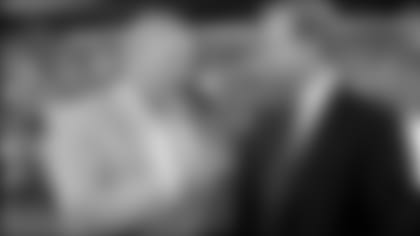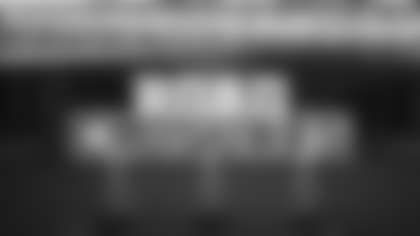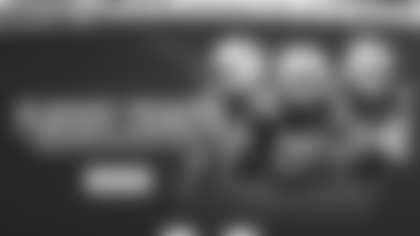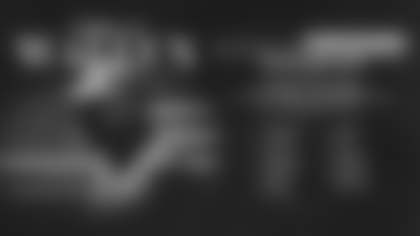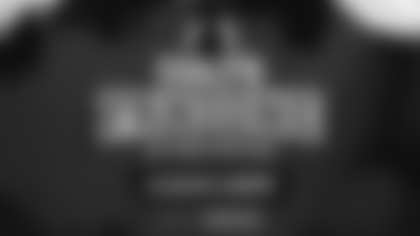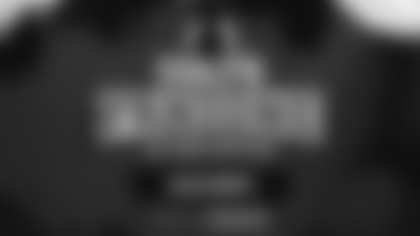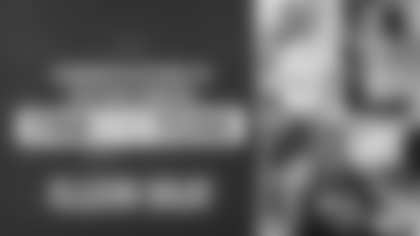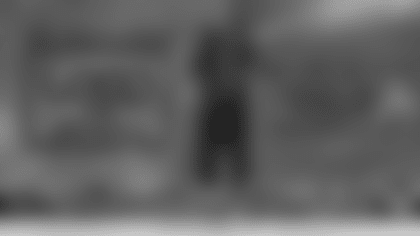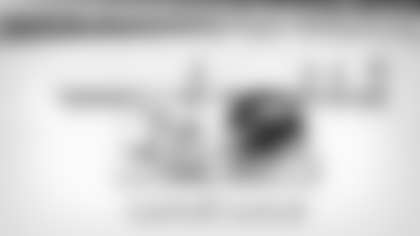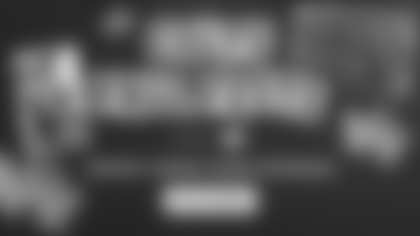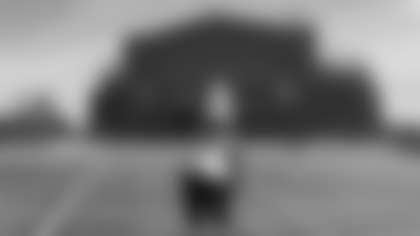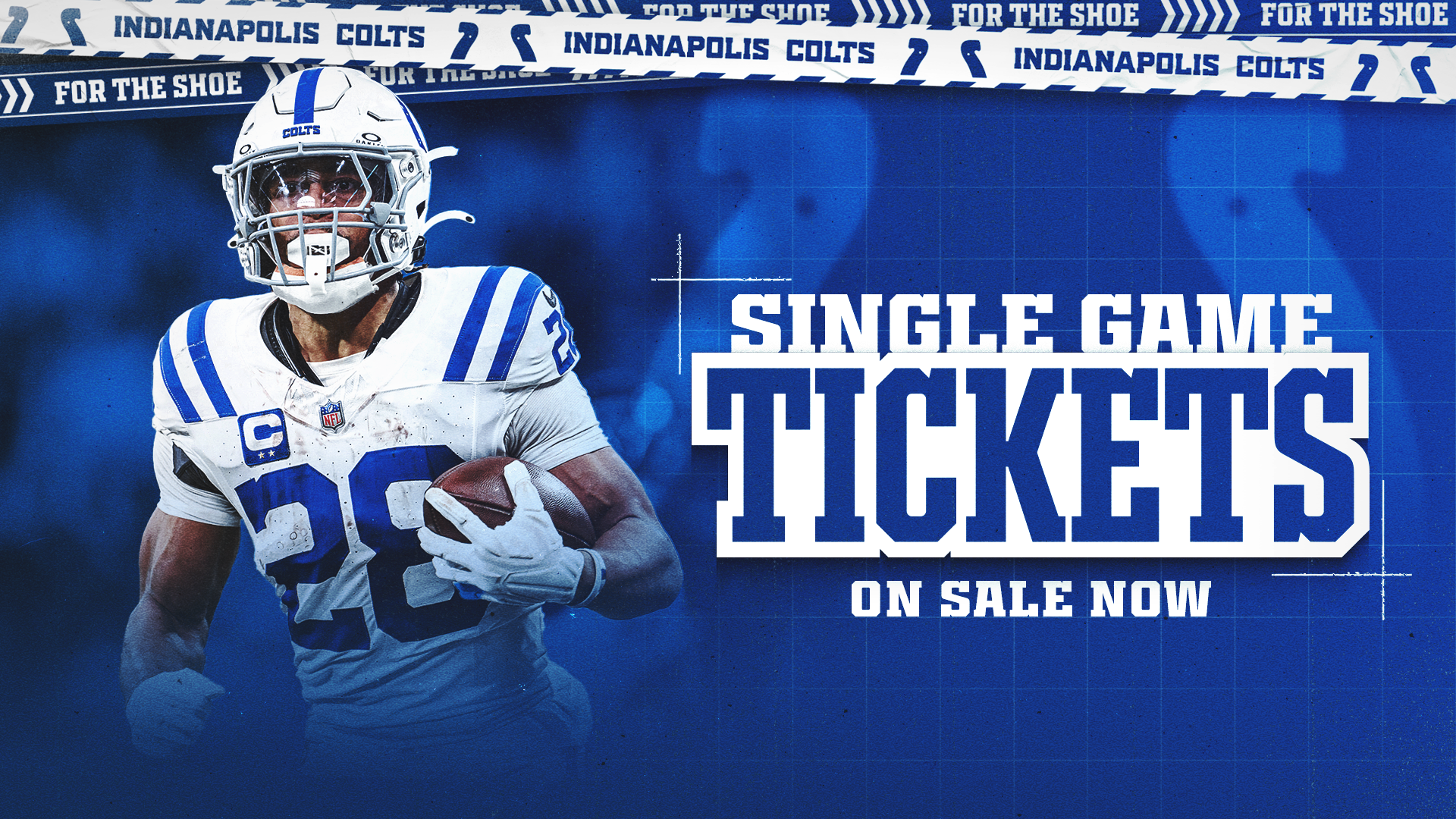Week 4: Bye Week
Bill Polian, in his 11th season as Colts president, has a resume unique in the NFL. One of two men to win NFL Executive of the Year five times, Polian in the 1980s built the Buffalo Bills into a four-time Super Bowl participant. In the mid-1990s, he built the expansion Carolina Panthers into a team that made the NFC Championship Game in its second season, 1996. Since joining Indianapolis in 1998, he built the Colts from a 3-13 team in 1997 and 1998 into one that has made the playoffs eight of the last nine seasons, including an AFC Championship Game appearance after the 2003 and 2006 seasons, AFC South titles in 2003, 2004, 2005, 2006 and 2007 and a Super Bowl championship following the 2006 season. Each week during the season, in The Polian Corner, Polian and Colts.com will discuss issues pertinent to the Colts and the rest of the NFL.
Question: A 23-21 loss to the Jacksonville Jaguars at Lucas Oil Stadium on Sunday. A disappointing loss, certainly. The Colts are 1-2 for the first time since 1998, but as was the case when the team started 3-0 the past three seasons, nothing has been won and nothing has been lost.
Answer: This race is going 17 weeks. We didn't get off to the start we wanted. There are a lot of reasons for that. All is not lost and there are ways that we can improve as the weeks go forward. We played in many respects Sunday well enough to win. We didn't, and that's tremendously frustrating and tremendously hurtful. I can't think of a worse night after a ballgame since the loss (to the New England Patriots) in (the AFC Championship Game in) Foxboro (Mass.) in '03 – interestingly enough with the same referee on the game. But that's the way it is. That's the way it goes in this league. You have to shrug it off and move on.
Q: It seemed like there was a lot to like on Sunday, particularly offensively . . .
A: From the perspective of the last drive, if you look at that as (Colts quarterback) Peyton (Manning) with the offense in the third preseason game, we're now hitting high gear. We went right down the field, 'Boom, boom, boom, boom, boom . . .' From my way of thinking, we did hold the lead. Somebody else thought differently. That's the way it is. Nothing you can do about that. I suffer from Irish Alzheimer's. I forget everything but the grudge. So, I won't forget, but you have to move on. Although we differ about the outcome, the record book says, 'L,' and that's what it is. But that doesn't take away from the fact that you made a lot of plays down the stretch on both sides of the ball and on special teams. Special teams had their best day Sunday. If the result had turned out differently, with respect to one decision, we'd be sitting here talking about being 2-1 and how are we going to improve the run defense? That's the way I look at it, because when you look and analyze the film, we finished the game. I'm happy about that. I'm fine with that. If somebody else didn't, that's their prerogative, to view it that way. As far the offense, as I said – high gear, really from the outset. We only had 50 plays on offense. That's sort of unheard of for us. We did very well against a team that had a good plan and obviously knew how to attack us and knew how to attack our weaknesses. That's what happens in the National Football League every week, so bottom line, I think there were lots and lots of bright spots and lots of things that we can build upon and certainly an area which feeds into all other defensive areas that we have to get shorn up.
Q: How do you do that? And do you have the time in two weeks to do it?
A: You have the time because it's just a function of a couple of things. As (Colts Head Coach) Tony (Dungy) said (Monday) afternoon, it's a function of doing what we do, not trying to be something we're not, because we've lost four key players on defense. Let's go back and look at it analytically. The bottom line is through no fault of our own, we do not have either (second-year defensive tackle) Quinn Pitcock or (second-year defensive tackle) Ed Johnson, each of whom played major roles in helping us be the No. 2-rated defense in the league last year. We don't have (safety) Bob Sanders. We're used to that. He does not play a full season traditionally. He'll be back soon enough – probably good as new. We do not through no fault of our own have (veteran linebacker) Tyjuan Hagler, who played a major role. There are four guys that are missing. Tyjuan will be back for Green Bay, but those are four guys missing from the lineup who are major, major players in last year's defense. Now, we have to replace them. We've been doing it on kind of ad-hoc piecemeal kind of basis, because we didn't expect to lose any of the four. Certainly, in Bob's case, we're very well aware of his longevity history, but Melvin Bullitt was there to step in and he did a great job Sunday. No problem there. But the other three, we never expected to lose. We lost them in a 1-2-3 as we sort of entered the season. So, that takes some adjusting. It takes some adjusting scheme-wise. It takes some adjusting from a cohesion standpoint. It takes some adjusting from a standpoint of how to call the game and things of that nature. I think we're beginning to get comfortable with the new players we have. (Defensive tackle) LaJuan Ramsey did a good job Sunday and showed us signs that he can step in and play that role of the big man inside. (Defensive tackle Dan Muir) has been a little bit nicked the past couple of weeks. He is going to come back and he's a 315-pounder. We believe he has the capability to step in. Tyjuan will be back very soon. Bob will be back very soon. The graph should go up defensively and once we get those players fitted in and feeling good about what they do, then we can go back to doing what we do, which is basically playing Cover 2 defense and not having to worry about eight-man fronts all the time and moving the front because we're a little small there and things of that nature. We can improve there. No question about it. We have improved on special teams dramatically, both in the return game making up for the loss of T.J. Rushing and in the coverage game and certainly kicking with Adam (Vinatieri). He had his best day Sunday and so did (punter) Hunter (Smith). He had a great day Sunday, too. Obviously, the offense is beginning to kick into high gear, so it's looking up. I'm not at all disappointed. As I said, I thought we finished the job Sunday. Others didn't. It just depends on how you look at it.
Q: Fans and media look at this and say, 'You've got to make changes in personnel. You have to sign this guy or trade for that guy or get rid of another guy.' Since you have been here, that never has been the Colts' approach . . .
A: Anybody that you would bring in who would be in a position to step in and play is a gigantic injury risk because they have a long injury history and because they're a little long in the tooth. When you hit these kinds of situations, people long for familiar names. We're all that way, but when you really analyze it, in terms of use of salary-cap dollars, the functionality that you're going to get from a player you bring in, you're far better off . . . We chose LaJuan Ramsey and Dan Muir over far many others at the cut to 53 because we felt they were the best players out there. We've never been far wrong in terms of our evaluation. They will fit in. We'll get a chance to get them used to what we do. We'll get better as time goes on.
Q: Colts fans are accustomed to fast starts. The team has started 13-0, 9-0 and 7-0 the past three seasons. But starting 1-2 hardly means you're out of the playoff picture . . .
A: This run of injuries/bad luck/tough situations occurred in the Super Bowl year in December. The hue and cry I heard them was, 'How can you possibly ever even get into the playoffs with a defense this poor?' Then, of course, we ended up winning the Super Bowl. As we proved that year, as the (New York) Giants proved last year, this is a marathon, not a sprint. You improve from week to week. You do not stay the same. The power ratings today will not equal the power ratings next Monday. I don't mean the newspaper power ratings or the blog power ratings. I mean the people who really truly know and analyze. The graph either goes up or it goes down and I think ours will go up defensively no question about it when we get Bob and Tyjuan and people of that nature back. No problem there at all. It's going to get better. And then offensively, there are no questions. We went down the field Sunday: boom, boom, boom and win the game.
Q: Short term, what can be done to address the defense?
A: There are two things you can do when things are going poorly. As Bum Phillips used to say, the former coach of the Houston Oilers and New Orleans Saints, you can get better people or you can get the people you've got better. We prefer to get the people we have better, because there aren't any better people out there. That's what this week will be dedicated to – working hard to get our people better in certain situations. We'll take a look at how we structure the roster. If we can get eight bona fide defensive linemen up and working in a given ballgame, I think that helps greatly. Sometimes, you can't do that because of injuries at other positions. That has been the case because of the offensive line being so banged up. You work in limiting points. We have done that with our last two opponents. It's frustrating when they run the ball on you. I share the frustration. It's tough to sit there and watch it, but in the end, it's points that matter and finishing the game that matters. From my perspective, we finished the game. I'm not going to hold (outside linebacker) Freddy Keiaho responsible for something he didn't do. He did the right thing. We can get our people better and they are getting better. The time of possession was a problem Sunday in that it wore our guys out and we don't have eight bona fide defensive linemen dressed, so when they control the ball as they did for 73 plays, you're in a situation where your guys are tired out at the end and we missed some tackles. That has to change and it will, if we can get off the field on third down. That's another area we have to work on. It's no secret that we're a much better team when we can play zone pass defense than when we have to play man-to-man. All of those things work together and you can get those situations all better and improve and we will.
Q: What did the league say happen on the Freddy Keiaho pass interference call?
A: I don't know. They wouldn't give us an explanation. They don't deserve to be spoken about. There's really no need to speak about them. They do what they do. They show up every week. Let somebody else worry about them. That's the way I feel about it. If I were in charge of them, it probably would be vastly different, but I'm not. Whoever's in charge of them, he has to do his thing and they have to do their thing and I'm not going to worry about it.
Q: Can you talk about the clock management at the end of the game Sunday?
A: It's a great question and an issue we talked about Monday. When you start playing football at 13, 11 or nine – whenever you start - you always learn that the bottom line is to score as quickly and as many points as you can and then turn it over to your defense to win the game. But if your defense is either tired or undermanned – and ours was both Sunday – there may come at time when you have to go against strategy that you have learned from the time you're a young boy and take some clock management into consideration. Would you in that situation a) force them to use times out, which they probably would have done if we were running the ball and bleeding the clock; and, b) be in a situation where you felt good enough about your offense that you could bang it in there. The latter situation I would feel wonderful about. I think when we're down there in red territory with 1:07 left, we probably could take our sweet time and knock it in there and certainly get a touchdown and maybe have less than 40-50 seconds to go if they used their times out and they would be out of times out. That would be a very different way of managing the game, but one that makes sense given the condition of our defense. In a sense, that's the way Jacksonville played. They had a beaten-up offensive line and they said, 'We're not going to expose our quarterback to Indianapolis' rush and we're going to bleed the clock and keep the ball. We don't care how many points we necessarily score. We're not looking to score a lot. Hopefully, at the end of the game things will break right for us,' and they did.
Q: Can you discuss the play so far this season of Colts wide receiver Marvin Harrison?
A: There isn't a thing wrong with Marvin. As far as I can tell, he is his old self. Has he lost maybe a quarter of a step because he's 36 years of age? Maybe, but I don't know that for sure. If it is, it's no more than a quarter. There is absolutely no reason to be concerned about him. If you saw how he played Sunday, why would you be? The fact of the matter is he had his way out there and actually the ball that fell incomplete that would have been a touchdown wobbled a little bit because (Colts quarterback) Peyton (Manning) was under just a tad of pressure. I think Marvin thought Peyton was going to throw it outside instead of inside because of pressure. It's those little things that cause a misfire, but he was right there and open. Absolutely no reason to worry about Marvin. Leave that to the media. We don't have any worries here in this building. We're happy to have him. With respect to the media, I've said all along they have a role to play, but it's with the fans not with us, the professionals. The worst possible thing any professional in our game can do is to listen to and pay attention to the media. No. 1, the media doesn't play and they don't coach and they don't manage. They don't have impact on the outcome of the game. Secondly, many times they espouse theories that are completely wrong. Now, in the world of the blog and what have you who knows who it is that are spouting these theories? It's all well and good for the fans. I take no position on that. When the time comes when I'm a fan, I'm sure I'll read it and listen to it. Right now, I pay no attention to it and we counsel our young players not to pay any attention to it. Our older guys are smart enough to know they shouldn't pay any attention to it. They should listen to one voice – that of (Colts Head Coach) Tony Dungy and by extension the coaching staff and to people like myself in the building that know football. That's what we always have done and that's what we'll continue to do. We don't pay any attention to statistics, to woe-is-me-the-sky-is-falling to this-particular-player-may-be-finished or any of that stuff. That's all well and good and wonderful and more power to you, but it doesn't have any effect on us.
Q: And Marvin made several big catches on Sunday . . .
A: Absolutely. He caught a huge down-the-field pass and got out of bounds that started the thing off. He's the same Marvin he always has been.
Q: Can you explain why the pass interference call at the end was not a reviewable play and why the Colts didn't challenge the ruling?
A: You have to understand how the rule works, first of all, and the history of it. When the rule was first put in – the new, modern challenge system – we did not want the eye in the sky – the guy up in the booth – to ever intervene whatsoever. We wanted him to simply be a communicator and a facilitator because we felt – and we represented a super majority – the eye in the sky was interfering with the flow of the game. We never wanted that guy to have the ability to stop play on the field – the committee did not. Then, we got to what we call the big meeting with all 32 teams there and all of the owners and all of the presidents and all of the head coaches. (Oakland Raiders Owner) Al Davis – and for whatever else you may have read or heard about Al Davis he is truly one of the great football men in the history of this league; he really knows the game. Al Davis said, 'I'm unhappy with this because if a coach is out of challenges before two minutes he needs to have the ability to challenge a play inside two minutes.' We ruminated and we talked about it and finally Al Davis said, 'I will support this if you allow the eye in the sky to come in under two minutes,' so the number of challenges you used before two minutes is immaterial. If a game is on the line inside two minutes – as he correctly pointed out, it often is, and as ours have been the last two weeks – then you would have the ability for the eye in the sky to come in then and if he sees reason for challenge then he would do so. Unfortunately for us, DPI – defensive pass interference -- is not a challengeable call. It is a judgment call. It is non-challengeable, so we could not have challenged had we had a challenge and probably if we had had one, if it was challengeable, the eye in the sky would have come in there. It was close enough to do so, but the whole issue is moot, because that's a judgment issue and is non-challengeable.
Q: Did it seem there were a high number of missed tackles Sunday?
A: I think we had seven missed tackles. The vast majority of those came in the late third and fourth quarter when we were really tired and had been out there a long time and had been pounded upon by their big offensive line – albeit not their starters – and those two great backs for a long period of time. Two backs of that quality will wear you down over time and they'll cause you to miss. We had more misses than we would have liked. (Second-year safety) Melvin Bullitt was not the only culprit or the largest culprit by any means. There were more misses and that, I think, was due more to fatigue than anything else. Not conditioning fatigue, but the kind of fatigue that (the late Hall of Fame Head Coach) Vince Lombardi described when he said, 'Fatigue makes cowards of us all.' When you're in a 15-round fight and you reach Round 14 and you have been taking a pummeling all of a sudden the hands come down and the feet are not as quick and it's a physical reaction to a physical game.
Q: Can you explain the lack of an effective pass rush for the Colts Sunday?
A: That is a function of having to play short on the defensive line because of injuries at other positions and not having the ability to rest the Robert Mathises, the Keyunta Dawsons, the Eric Fosters. You don't have the ability to rest those guys and they are absorbing a lot of that run punishment and then at the end of the game, when they should be fresh to finish the game, they're not necessarily and they can't give you their best effort. On the last drive, (defensive end) Dwight Freeney had I believe four really good rushes. One, we felt clearly should have been penalized, and there were two or three others where he really got to the quarterback, but nobody else came in there to finish the guy off. Then, there was one very bad break and when things are going badly for you, they always go badly. (Jaguars quarterback David Garrard) threw a ball that would have gone right to our linebacker, but it tipped off somebody's helmet and they completed the pass, actually. When it rains, it pours, but if we can get our defensive-line rotation stabilized and play big against big and keep the rushers, the greyhounds, healthy for the end of the game, we'll be in much better shape. We have not been able to do that because a) we have to bring those new big people along and get them factored into the system and b) because injuries at other positions have forced us to go short on the defensive line on game day.
Q: Was the hit late in the game on tight end Dallas Clark not an illegal, helmet-to-helmet hit?
A: I called the league office Monday to check. They said it was not a finable offense because he did not hit Dallas – who was a defenseless player under the definition of the rule – with his head. He hit him with his forearm. That is not a fineable nor penalizable offense. Dallas is fine. He's OK. He's in good shape.
Q: Why doesn't the NFL replay every play the way the college system does? Would it really slow the game that much?
A: The college system runs along parallel to the game. The guy in the booth can interrupt and stop the game wherever he wishes and he makes the decision independent of the official on the field. It's almost completely the reverse of ours, although the coaches now at the collegiate level have I believe two challenges a game. I watch a lot of college football. I see at least two games a week live over 12 or 13 weeks, so I see 25 or so games a year live. I would agree that it is not the interference with the flow of the game that ours was under our old replay system, but I would hasten to add that the athletes are nowhere near as good at the collegiate level as they are at the NFL level. There is a tendency on the part of the public and the media to think that college football and the NFL are – if not quite similar – if not in the same pew, in the same church. No one feels that about collegiate baseball or collegiate basketball. The reason being that football players where pads and helmets so you can't really see the quality of the athleticism nor can you as a viewer on television nor even seated way up in the stands understand the ferocity of the hitting that goes on in the NFL. It is not only not in the same church as college football, it's not even in the same neighborhood, so to try to compare the two and say, 'Well, we could use this system at the NFL level with the quality of athlete, with the incredible plays they make,' I don't think you could possibly do it. I think you would have a major series of interruptions. Plus, I am one who does not trust the eye in the sky at all. I think they're retired officials who know very little about how the game is played. At least the referee on the field is in touch with the game on the field down there. He may not know a heck of a lot about how it's played, either – and I'm not saying that as a criticism. It's a fact. They don't know a lot about how football is coached, how techniques are coached, and what players do to avoid hits and avoid blocks. They don't know a lot of that and they don't know any Xs and Os, in most cases. They know the rules and the rules interpretations. At least the referee on the field is in touch with the game and he can talk with his fellow officials down there. I would be very leery based on my experience of turning over our destiny to the eye in the sky. I know I detested it as a general manager under the old system.
Q: The Colts are off this week. Is this a good time for the bye week?
A: It couldn't be better. It gives us an opportunity to get a bunch of people healed up and get them out there and back into the swing of things. This is an important week, even though we will not work with pads on. It gives us the opportunity to get back to fundamentals, to get new people such as our big tackles into the flow of things and to get back to fundamental things that have made us a good football team. The players will work Wednesday and Thursday and have Friday and Saturday off and come back Monday. Then, we hit a brand new week and get ready for Houston.


